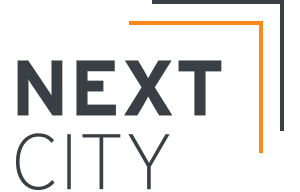Next City, May 2, 2014
At the moment more eyes than usual are focused on high-speed Internet’s uncertain future in the United States — from “open Internet” rules and municipal-run broadband to worry over Comcast’s pending Time Warner Cable merger.
Sitting in the middle of the debate is Christopher Mitchell, the director of the Telecommunications as Commons Initiative of the Institute for Local Self-Reliance. He has long advocated for city-run broadband networks such as those found in Lafayette, Louisiana, Chattanooga, Tennessee, and Bristol, Virginia.
I talked to Mitchell, who has an M.A. in public policy from the University of Minnesota and lives in Saint Paul, about why mayors love WiFi but shy away from fiber-optic cables, the frustrations of being told to reboot your router, and why he thinks the moment is ripe for city-run networks.
What’s the elevator pitch for municipal broadband?
That it’s a network responsive to local needs. Rather than decisions being made in a corporate boardroom on Wall Street, they’re being made by someone in town based on what’s going to benefit the community the most. And that’s going to be faster speeds, lower prices, better reliability, better customer service, those sorts of things.
City-run networks have a reputation of being especially fast. Is that deserved?
A municipal network, when it hears from businesses says, “Hey, I can ‘be competitive,’” or people saying “Our quality of life isn’t good enough because the speeds are too slow here,” they respond and build a faster network. Whereas Comcast or Mediacom says, “Yeah, we have a plan for how we’re going to upgrade … and we don’t really care about small-town Iowa.
Those who want to restrict community-run networks in the U.S. say that cities are risking taxpayer money on unproven business plans while at the same time competing unfairly with private networks. What’s wrong with that?
When you start talking about taxpayer dollars at risk, they’re just straight-up lying. Almost all municipal networks are built without taxpayer dollars. The city of Santa Monica in the late ’90s was spending a million dollars on connectivity. And then they built their own network, they were able to spend only $500,000 in the future on connectivity. Now, you might say those are taxpayer dollars. But they’re saving half a million dollars. And then they expanded it to businesses and now it’s a revenue source.
Does the fact that it’s a municipal network necessarily mean it’s a public utility?
The question is what a public utility means. A public utility is often regulated in terms of not encouraging, or not allowing, a lot of competition. So that’s clearly not the case in broadband where monopolies are prohibited by federal law.
But when you talk to people, they expect the same things out of their Internet that they expect out of water and electricity. They expect it to be reliable. They expect to pay a reasonable price, and they recognize that it’s essential.
Just this week, a friend in Saint Paul, a former school board member, had his neighbor’s tree fall across his yard, destroying his power line and his cable Internet connection. Xcel Energy was there eight hours later repairing it. He called Comcast. The person at first tried to get him to reboot his modem. They have a script they have to follow. He was like, I can see the line on the ground outside. It took a half hour to get through to this person that nothing he did from inside his house was going to restore this connection. Finally, Comcast said, “Okay, we’ll be out there in two weeks to repair it.”
That’s the different between a utility and what we have now.
…snip…





